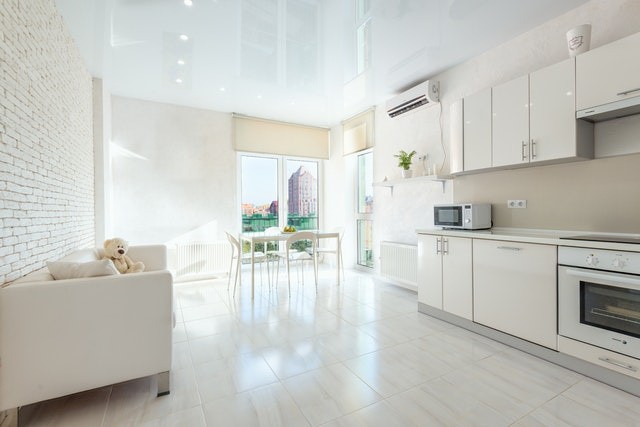
It's time for an upgrade for your air conditioning and cooling system, but how do you know which type of air conditioner is right for you? You keep hearing about the benefits of an inverter type air conditioner, but the hefty price tag makes you hesitate to purchase one.
In this article, we'll present the different types of air conditioning units, and what the differences between an inverter and a non-inverter air conditioner are so that you can decide on what unit would work best for you.
Common Types of Home Air Conditioners
Window Box-type Air Conditioner
The most common type of air conditioner is the box-type unit that goes directly into a window space. These air conditioners have been around for generations, and are easy to install as long as you have ample space for the unit in a window.
Wall-mounted Split-type Air Conditioner
The more modern, sleek cousin of the window-type unit, the wall-mounted split-type air conditioner does not need window space to install. Any flat, wall surface can be used to mount the unit, which may require some drilling for the cables and pipes that connect to the outdoor unit. Ductless types, however, do not require drilling as there are no outdoor units.
Portable Air Conditioner
The portable air conditioner is a plug-and-play type unit that can be moved from room to room as needed. This type of cooling system can range in sizes, and you can typically find a portable unit that can effectively cool your room. These units, however, are recommended for smaller rooms, as they may not cool down large rooms.
Floor-mounted Air Conditioner
Like the wall-mounted air conditioner, the floor-mounted air conditioner does not need window space to install, but it requires floor and wall space instead. These units are less popular, as they take up ground space, but are useful for homes with low ceilings.
Centralized Cooling System
Although a centralized cooling system is more commonly installed in commercial establishments, large homes can install a centralized cooling system to control the temperature from one focal point.
The Difference between Inverter and Non-inverter Unit
Technology
The main difference between an inverter unit and a non-inverter unit is the speed of the compressor. An inverter unit, in order to save on energy consumption, lowers its compressor speed once the room temperature has hit the set temperature on the thermostat.
This differs from the compressor speed of a non-inverter unit, which stays at one constant speed throughout usage, even when the room has already cooled to the set temperature. Both types of aircons, however, utilize the same cooling system to cool down rooms.
Care
Both an inverter and a non-inverter unit would require upkeep and professional maintenance regardless of the type of air conditioner. Once every six months, take your air conditioner for a professional cleaning, which should clear any dirt from the internal components of your unit. Wash the filter every two weeks or as needed to keep the air quality fresh.
At some point, you will need to look into an aircon gas top up for your unit, which will permanently fix any leaks and refrigerant issues in your unit, resulting in cooler airflow. You may also want to schedule a yearly chemical cleaning as well, to ensure your unit is working in optimal conditions.
Costs and Energy Consumption
Because of your perceived savings with an inverter unit, the price tag of an inverter air conditioner is typically 20%-30% higher than that of a non-inverter unit of the same type. However, the savings you get on your electric bill will depend on how often you use and maintain the unit.
It is recommended that you use your inverter air conditioner for a minimum of 4 hours to maximize your energy efficiency for the unit. Some users may report no difference in electrical consumption while the aircon runs for 24 hours, this can put a strain on your unit and limit its lifespan.
Which Air Conditioning Unit Should You Get?
Inverter type aircons are advanced versions of the traditional air conditioning units that promise the same cooling factor at a lowered energy consumption. However, because an inverter type would only lower its compression speed once the room hits the set temperature, it is not recommended for extremely large areas as it will take some time to cool.
Non-inverters, on the other hand, will keep cooling the room even past the set temperature, as the compressor continues to run at the same speed despite hitting the set temperature in the room. While each type of unit has its pros and cons, it is always best to scout for units to know which type works for your home.
© 2025 ScienceTimes.com All rights reserved. Do not reproduce without permission. The window to the world of Science Times.












